Embarking on a weekend backpacking trip unfolds an adventure that taps into the essence of freedom and exploration. Preparation is your north star, whether you’re setting sights on an alpine crest or planning a serene trek through the backcountry. For many a backpacker, the anticipation starts at the trailhead, where dreams of untouched campsites and the promise of a long weekend in nature begin.
However, the difference between a memorable expedition and a challenging ordeal often lies in the basics: a reliable backpack, the right headlamp, and, of course, sunscreen to protect against the relentless sun. This article serves as your ultimate checklist, meticulously crafted to ensure your hike transcends from a mere idea to a series of unforgettable moments.
From seasoned hikers to those strapping on their boots for the first time, join us as we look into the essentials of weekend backpacking. We will ensure your adventure is as seamless as the trails you aspire to conquer. Stay tuned as we explore not just what to pack but how to prepare, promising a journey that’s as rewarding as the destination.
Essential Gear For A Weekend Backpacking Trip
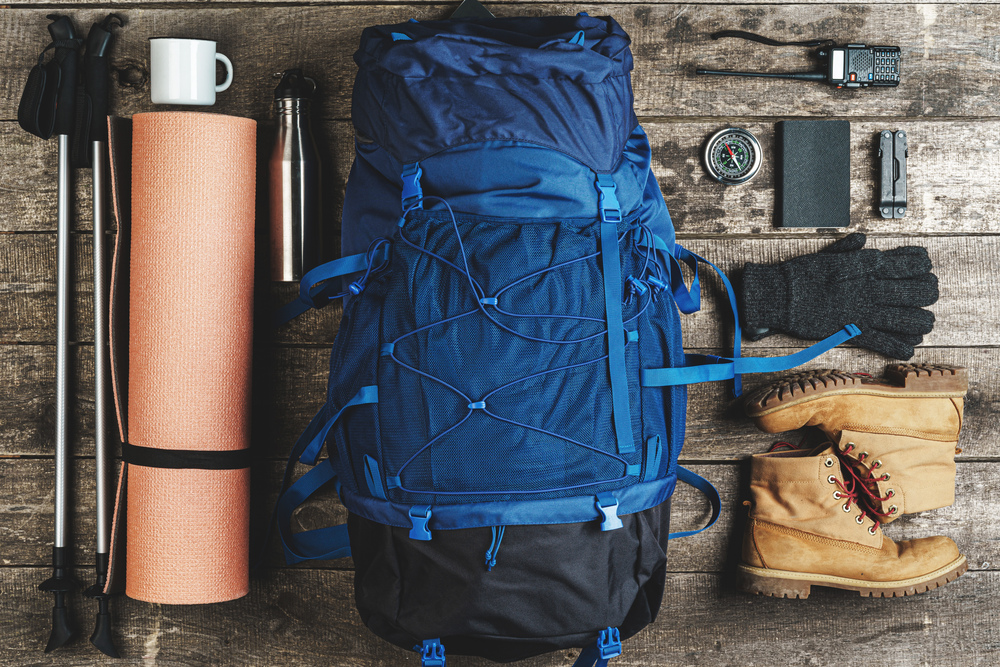
Success on a weekend backpacking trip doesn’t just happen; it’s engineered through meticulous preparation and the right gear. Here’s everything you need to ensure your backpack is packed with purpose for your next hike.
- Backpack: A lightweight backpack is the backbone of your adventure. Ideally, 50-60 liter capacity strikes the perfect balance for a long weekend, fitting all necessities without weighing you down.
- Shelter: Your tent is your sanctuary. Opt for a lightweight and durable tent that offers protection and comfort. Pair it with a resilient sleeping bag tailored to the season’s temperatures, and don’t overlook the importance of a sleeping pad for insulation and cushioning.
- Cooking: A compact stove and adequate fuel are non-negotiable for hot meals. Ensure you have fire-starting tools like a lighter and waterproof match for ease. Don’t forget compact cookware, lightweight utensils, and high-energy, easy-to-prepare food choices that sustain a trekker’s appetite.
- Clothing: Dress to conquer.
- Base layers do more than just cover; they manage moisture to keep you dry.
- Insulated pieces retain heat, preserving your body’s warmth as the temperature drops.
- Waterproof outer layers shield against rain and wind, proving essential in unpredictable alpine conditions.
- Extra socks and underwear are crucial. A fresh pair can make miles of difference.
- Lastly, don’t set off without a hat and gloves, especially in environments where the cold bites as sharply as the views are stunning.
Peeking through your backpack before heading to the trailhead ensures that your weekend backpacking trip is poised for triumph. Incorporate this essential gear into your packing ritual, and you’re set to embrace the backcountry with confidence, prepared to trace the contours of crest and campsite alike under the vigilant beam of your headlamp, all while protected by the sheer necessity of sunscreen.
Navigation And Tools
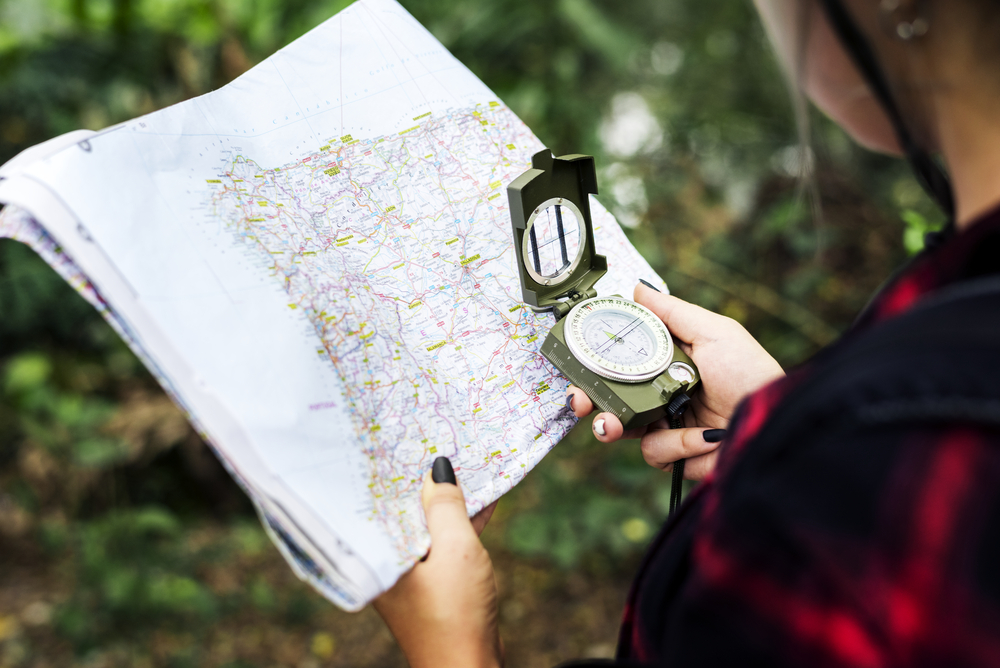
Navigating the wilderness on your weekend backpacking adventure requires a blend of old-school skills and modern technology. Ensuring you can always find your way, no matter the visibility or battery level, will elevate your journey from good to unforgettable.
- Map and Compass vs. GPS Device: While the allure of technology is undeniable, there’s a reason the map and compass remain staples in a backpacker’s arsenal. These fail-safe navigation tools don’t rely on battery life and work where GPS signals can’t reach. A GPS device offers convenience and pinpoint accuracy, making it an excellent companion for traversing unfamiliar terrains. The savvy backpacker packs both, ready for the Appalachian trails or exploring the rugged beauty of the Pacific Crest Trail.
- Multi-tool: The quintessential do-it-all gadget, a multi-tool, can’t be overlooked. Whether you’re repairing gear, preparing a campfire meal, or making minor adjustments to backpack straps, this compact yet robust tool is indispensable. Its utility goes beyond mere convenience, often becoming a crucial piece of your equipment in the backcountry.
Incorporating this essential navigation and tools into your pack ensures you’re prepared to confidently hit the trail, whether you’re captivated by the wildflowers along the Cascade crest or setting out to conquer the loop trails and jagged vistas of Maroon Bells-Snowmass Wilderness. With the right preparation, your weekend backpacking trip transitions from just another outing to a memorable journey through some of the most stunning landscapes, where every turn offers breathtaking views, from mesmerizing waterfalls to serene highland meadows. Remember, the right tools not only aid in your exploration but ensure you leave no trace, preserving the natural beauty for your fellow adventurers and the countless generations to come.
Health And Safety
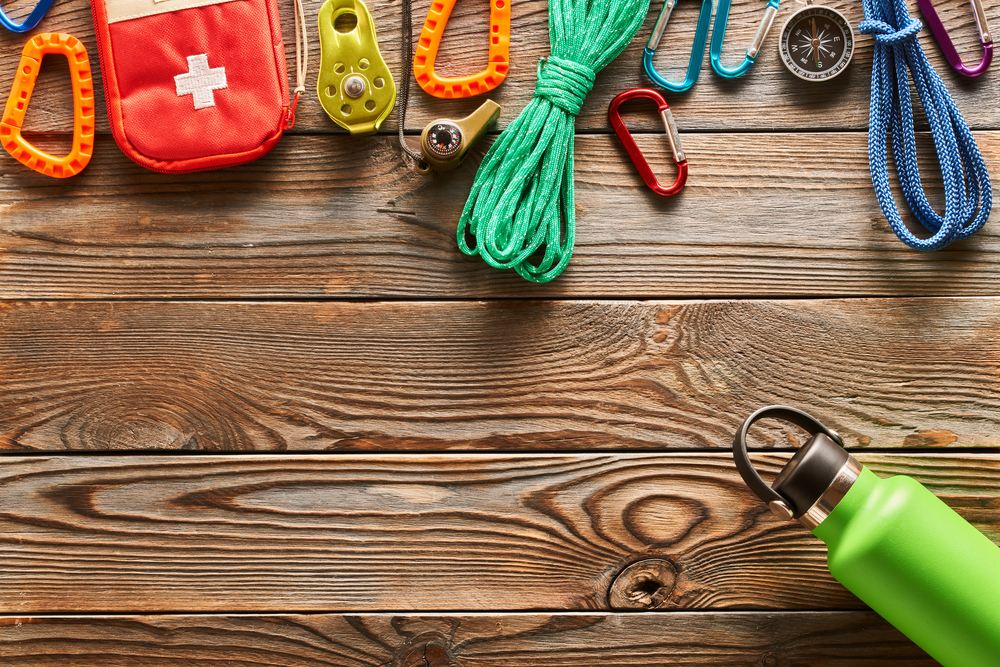
On any weekend backpacking trip, your pack is your lifeline. Therefore, ensuring it’s equipped with health and safety essentials is not just a precaution; it’s an imperative. These critical items safeguard against the unpredictable, guaranteeing your time in the backcountry is remembered for the right reasons.
- Components of a First Aid Kit: Stock a compact, lightweight first aid kit with items tailored to your journey. Include bandages, antiseptic wipes, blister treatments such as moleskin, and medications for pain, allergies, and stomach ailments. Also, consider adding a small booklet on wilderness first aid—a quick reference can make all the difference.
- Sun Protection Necessities: Sunscreen is non-negotiable. A sunburn can turn a long weekend hike into a long, miserable drag. Pack a broad-spectrum sunscreen with a high SPF, lip balm with sun protection, and a lightweight hat to cover your head.
- Insect Repellent: Insects can range from a nuisance to a genuine health hazard. A good insect repellent will protect you from bites, making your trek through even the most bug-infested trails more bearable.
- Water Treatment Methods: Clean drinking water is paramount. Pack lightweight water treatment options like purification tablets or a portable filter to ensure access to safe water no matter where you find your water sources along the trail.
- Headlamp and Extra Batteries: A reliable headlamp with extra batteries is indispensable. Whether navigating an early morning start, a late evening at the campsite, or an unexpected night trek, a headlamp ensures you’re never left in the dark.
Incorporating these health and safety components into your backpack prepares you to face the variables of weekend backpacking in the alpine backcountry with confidence. From the trailhead to the campsite, crest to valley, ensure you’re equipped to enjoy every sunrise and sunset, protected and prepared for the adventures that await.
Personal Items And Extras
The difference between a good weekend backpacking trip and the best weekend backpacking trip often comes down to the personal touches. Essentials ensure safety and viability, but it’s the personal items and extras that elevate your experience.
- Personal Documentation and Permits: Don’t overlook the essentials. Carry personal identification, maps, and necessary permits. Be it the highland stretches of the Appalachian Trail or the craggy out-and-backs of the Pacific Crest, ensure you can prove your right to traverse these protected lands.
- Hygiene Products: Hygiene doesn’t hit the pause button while you’re backpacking. Pack biodegradable soap, a toothbrush, and toothpaste to maintain cleanliness and leave no trace principles near camp or along the North Fork.
- Quick-Dry Towel: This lightweight multifunctional tool can dry you off after a swim in a mountain waterfall, act as a makeshift pillow, or help bundle wet gear along the trail.
- Devices for Capturing Memories or Entertainment: Embrace the digital age on the trail with devices dedicated to preserving your memories. Ensure your trip is well-documented for those at home or your own reminiscing. Do remember to download entertainment on iOS devices before you hit the trail, and pack chargers or power banks to keep them alive.
Packing these personal items is about planning the hike north but also preparing for time spent at your campsite, amidst the wildflowers of Washington’s National Forest, or under the majestic views of the Maroon Bells. They’re about comfort and joy and ensuring your weekend backpacking adventure remains imprinted in your memory—so you can relive those 18-mile days and 10-mile vistas, the flora and fauna of a meadow, or the refreshing cascade of a backcountry waterfall with a mere glance at a photo or a campfire tale.
Packing Tips
As you prepare for your weekend backpacking trip, mastering the art of packing is as crucial as the gear itself. Efficient packing ensures comfort on the trek, allowing you to focus on the alpine vistas instead of adjusting straps. Embrace these strategies for a balanced and fulfilling journey.
- Balancing and Distributing Weight: Aim to distribute weight evenly, with heavier items (like your sleeping bag and tent) centered and close to your back. This balance is key when navigating the uneven terrains of the backcountry or cresting campsites with breathtaking views.
- Strategy for Frequently Used Items: Keep essentials like sunscreen, maps, headlamps, water, and snacks within easy reach. Pockets or an accessible layer in your backpack can save time and hassle, ensuring a smooth trek from trailhead to campsite.
- Utilizing Compression Sacks: Space is a premium commodity. Compression sacks can dramatically reduce the volume of bulky items such as clothes and sleeping bags, making more room for necessities without adding extra backpack weight.
- Leave No Trace Ethics: Pack with the environment in mind. Ensure all items, including waste, can be packed out. This mindset keeps the backcountry pristine for fellow hikers and protects the natural habitats you’re there to enjoy.
This checklist isn’t just a packing guide; it’s a blueprint for a successful weekend backpacking adventure. Each item, from the essential gear to the personal touches, plays an important role in crafting an enjoyable, respectful, and memorable trek. Whether you’re venturing for a long weekend or challenging yourself on a rugged trail, remember the core principles: balance, preparation, and respect for the natural world. Embrace these, and your backpacking trip will not only be successful but also profoundly rewarding.


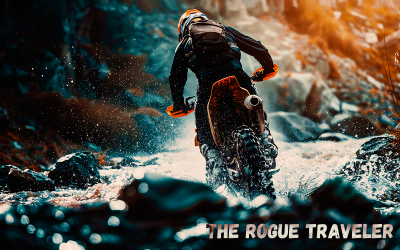
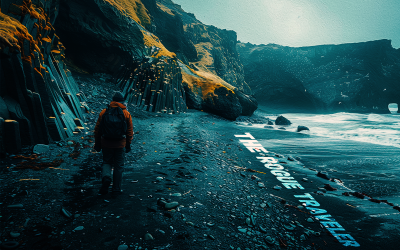
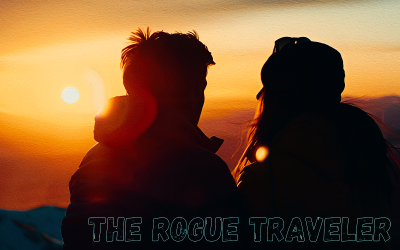
0 Comments